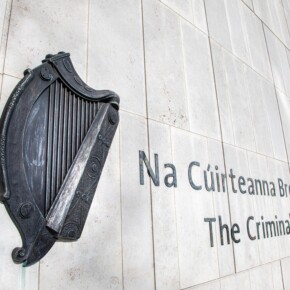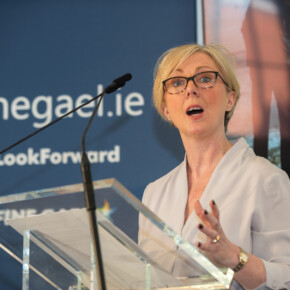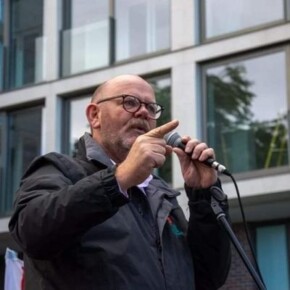Rent increases for Fingal tenants in divisive budget
Mike Finnerty 26 Nov 2025
Fingal County Council has signed off on a controversial budget, which has revealed tensions within the governing coalition.
In June 2024, Fianna Fáil, Fine Gael and Labour signed off on a deal to run Fingal County Council until 2029, but this week saw Labour councillors vote against the proposed budget for the upcoming fiscal year.
At a four-hour meeting on Tuesday (18th), councillors discussed the various figures attached to Fingal County Council’s budget for the next year.
Per the council, the €433 million budget for 2026 marks an 11.4% increase compared to 2025, and marks a major increase compared to the €214 million that was agreed upon by councillors in late 2015.
The council has said they are now spending €1,311 per person living in the county.
In the press release, the council said, “the new budget will see increases in some income streams that have not experienced rises for some years despite the council’s expenditure more than doubling.”
The budget wasn’t passed without drama, however.
It took an alliance of Fianna Fáil, Fine Gael and Aontú to pass the budget, with Labour, Sinn Féin, Solidarity and Social Democrat councillors voting against.
For the second time in as many months, Labour’s grouping on Fingal County Council broke ranks and voted against their Fianna Fáil and Fine Gael colleagues, raising questions about whether the agreement, which was agreed in June 2024 after talks broke down among left-wing parties, can hold until June 2029.
In the summer, the party voted against cutting the Local Property Tax, which their Fianna Fáil and Fine Gael colleagues argued in favour of, and needed Aontú and independent support to pass.
Explaining Labour’s decision, councillor James Humphreys said that his party could not “cut funding and still increase rents for council tenants.”
The Swords councillor said that his party was against an amendment which would raise the differential rent scheme from 12% to 17% of accessible income.
Humphreys explained that the original proposal would have changed the differential rent scheme so that the main earner’s contribution would jump from 12% to 17% of assessable income, with worked examples showing weekly rent increases of around 40% for typical tenants.
“The amendment pushed through by the ruling group does not remove the rent rise, it simply scales it back so that the percentage of income increases by 2.5% instead of 5%.”
The Labour councillor said, “they kept calling it a “2.5% change”, but because rent is a share of income, moving from 12% to about 14.5% is in reality a rise of just over 20% in what tenants pay.”
“On top of this, the amendment cuts €2.7 million from the budget, by reducing a mix of day-to-day spending and transfers from revenue to capital spending,” he noted.
He said, “we still have not been given a clear, line-by-line explanation of what that now means in practice, which projects will be delayed, which programmes will be scaled back, and which local services will lose out.”
The Labour councillor noted “all of this is happening while Fingal County Council continues to hold very substantial reserves, including large balances from development levies, millions in a Covid-19 fund and a significant rates revaluation reserve built up to manage risks such as ongoing appeals by major ratepayers, like the daa.”
“In my view, those financial cushions should have been on the table before anyone asked council tenants to pay more and before they started cutting back on services and capital funding.”
Social Democrats councillor Joan Hopkins asked the meeting, “who are we asking to pay for it?”
“People are paying too much of their income on rents and mortgages,” the Howth-Malahide councillor said.
“Money needs to be found,” she noted, but it shouldn’t come from the pockets of people on lower incomes.
“I don’t see how a person can live,” she said in relation to the budget proposals, and questioned if the council had carried out a poverty-proofing assessment to see if people on lower incomes could live on the proposed budget.
Swords councillor Dean Mulligan, of Independents4Change, said he voted against the budget as he believed the proposed rent increases for social housing tenants were too high in the context of a cost-of-living crisis.
Mulligan expressed frustration that a counter-motion, which called for an extra week to review the figures, was voted down by Fianna Fáil and Fine Gael councillors.
The Independents4Change councillor said that an extra week to review the figures was necessary in order to draw up a “fairer, more reasonable” option.
“I will continue to stand against measures that place unnecessary pressure on those already struggling,” he said.
The Sinn Féin grouping on the council said “the proposal to increase Fingal tenants’ rent by up to 40% is immoral when families are really struggling with the cost-of-living crisis.”
“People are being pushed to the pin of their collar trying to cover the cost of food, heating and fuel.”
“The last thing working families need is a rent increase. Families in council housing are in overcrowded conditions, poorly insulated homes, requiring urgent upgrades. Demanding more rent is an insult,” Sinn Féin’s four councillors (Angela Donnelly, Malachay Quinn, John Smyth and Breda Hanaphy) said in a statement.
On the government side, Fianna Fáil councillor Eoghan O’Brien said “there’s a lot of slagging and name-calling going on here,” and discussed “the reality” of the financial situation in the county.
“I have to laugh – all the talk of mature debate and discussion that would take place, it certainly hasn’t been evident here,” the Howth-Malahide councillor said.
O’Brien defended the rent increases, saying “in a perfect world, we’d have no need to charge any tenants rent, we wouldn’t have to charge businesses’ rates, homeowners property tax, etc etc, but there are many of us here in the chamber who have to deal with the world as we find it as opposed to what we would like to see.”
The Fianna Fáil councillor said the budget was a “reasonable compromise,” and dismissed the opposition’s charges that extra funding could have been found.
“I’m not buying this ‘we would have found an extra €6 million, come back in here, and say everything is tickety-boo, we’d all hold hands and sing Kumbaya approach’”, and said that the budget was the best the council could do given the financial hand it was dealt.
Fine Gael councillor Aoibhinn Tormey said that her fellow party colleagues were present at pre-budget meetings over the summer, and charged that opposition parties did not appear at the same meetings.
She also noted that the budget increases the budget for events, along with the council’s program of works budget.
“We want to deliver for the people who sent us here,” the Howth-Malahide councillor said.
“We are trying to be fair to people; we are here for the betterment of people.”
Independent councillor Jimmy Guerin noted the discrepancy between Dublin City Council and Fingal County Council.
The independent councillor noted that in Baldoyle, some parts of the street might be in Dublin City Council jurisdiction and others are in Fingal County Council jurisdiction, and it is noticeable which side of the streets receives more in council funding.
“Somebody on 35,000 in one house is paying 495 to Dublin City Council, his neighbour, across the road that he can wave at, is paying 353 to Fingal. That’s income we’ve lost year-on-year. We need to take corrective action.”
He acknowledged that the 17% rate is “far too high”, but noted that rents haven’t been changed since 2012.
“We have to be mature enough to take collective action,” he said.











